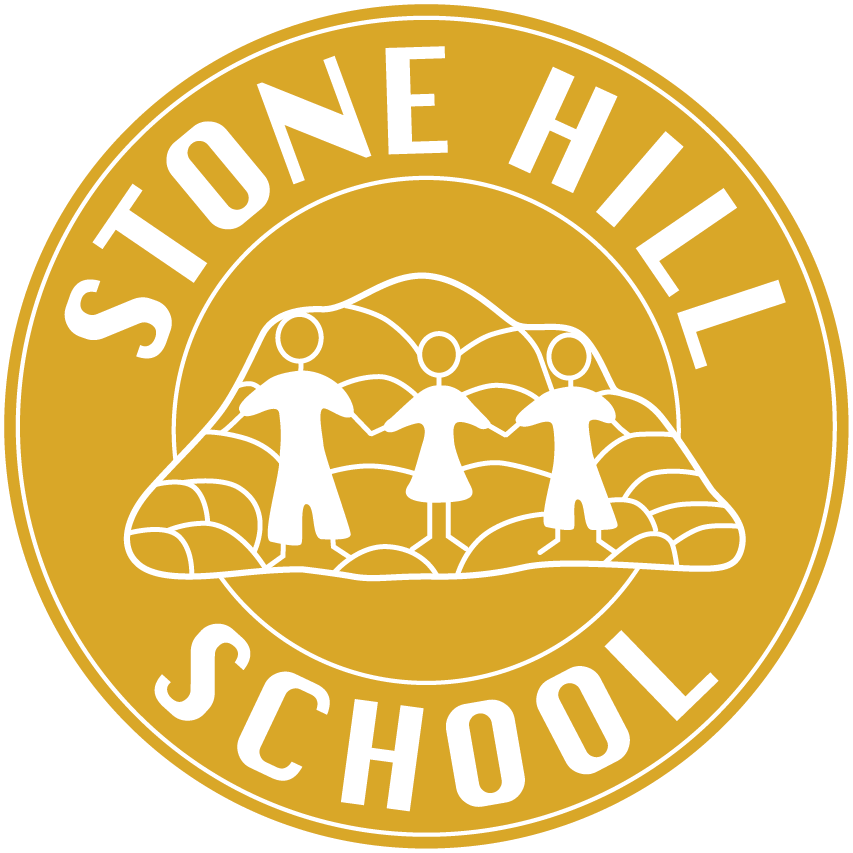Stone Hill School: English Intent
Key Stage 1 and 2
Pupils will enjoy listening to stories and will start to select books they would like to read independently. Pupils will re-read books they enjoy and begin to repeat recurrent phrases from the text. They will explain why they like their favourite books. As their phonic knowledge develops, so will their level of independence when reading. Pupils will feel proud of themselves as their range of vocabulary grows. Throughout their time in lower school, pupils will explore a variety of texts such as fairy stories, poetry and non-fiction. Pupils will be able to identify the different types of text they are reading. Reading materials will start to be analysed for techniques, for example, recognising rhyme in poetry. Pupils will be excited about choosing different books to read for pleasure. In addition to reading a variety of texts, pupils will develop their writing skills. They will practise writing on various materials. Pupils will learn letter formation. Pupils will start to write words independently during their phonics sessions. Progress in phonics sessions will reflect in English lessons and across the curriculum. Confidence will grow in writing their own name using capital letters. Pupils will develop a growing sense of pride in their writing and presentation. When reflecting on the texts they have read, pupils will be able to write down their recollection of events. They will use sentences and basic punctation. Pupils will start to explore spelling rules to further engage the reader. An appreciation for audience and purpose will develop. Writing will take place in the form of recollections, comprehension, displays, labels, lists and stories. There will be a clear distinction between upper and lower case letters.
Key Stage 3
Pupils will continue to read a variety of books. The texts they read will increase in difficulty and be age appropriate. Pupils voice will be used to select materials. By now pupils have developed an independent love for reading for pleasure. They will understand the meaning of the title, who the author is, what happens and their favourite characters with explanation. By reading a wealth of material, pupils will be able to compare material by the same authors for similarities and differences. They will use an authors style in order to create their own stories. The poetry that they read will increase in difficulty and will include children’s poetry as well as more classic poetry. Pupils will start to analyse poetry and rhyme further, identifying techniques such as alliteration and metaphor. Pupils will look at reviews, lists, labels and signs. They will create their own. Pupils’ writing will focus on clear letter formation, basic punctuation, more complex punctuation and evaluation of own work. Pupils will become adept at marking their own work and that of others, in order to improve writing.
Key Stage 4
Pupils will follow a suitable pathway which will lead to them achieving a qualification they can be proud of. Analysing past data identifies which pathway a pupil will follow. Short Course ASDAN allows pupils to complete mini tasks, whilst studying the same themes as their peers. Pupils choose themes they are interested in such as leisure, sport, crime, gothic horror, music and fashion. Within these topics, pupils will demonstrate their learning through a variety of means including presentations, blogs, vlogs, posters and leaflets. They will continue to read increasingly difficult texts using their decoding skills. Phonics letters and sounds will be built in to reading material to allow them further practise and encourage independent reading. Pupils will continue to grow in their confidence when reading aloud to staff and peers. Work will be created using a combination of handwriting and ICT. Pupils will present work verbally with growing confidence.
Pupils working at Entry Level will follow AQA Step up to English, following the same topics as the ASDAN pupils. They will complete mini tasks as directed by the course specification. This will include reading a variety of texts on the chosen topic. At this stage, pupils must be able to read independently. When reading text, they will analyse it for comprehension, facts, opinions and reliability. Written work will demonstrate that they can utilise all their learning from previous Key Stages. For example, they will use literary methods such as alliteration and metaphor, as well as understand problems, solutions, morals and complex punctuation. Pupils will write for a variety of purposes whilst also considering their audience. Pupils will present work verbally, demonstrating that their work is well thought through and structured. They will be confident when presenting. They will act upon feedback to improve spoken language skills.
Pupils entered for Functional Skills examinations will work on the same topics as their peers. They will be provided with reading material of a suitable difficulty. They will build vocabulary at pace by identifying unknown words, and finding out their meaning. At this stage in their learning, pupils should be reading difficult material in their own time, such as magazines and newspapers. Pupils will be able to predict, infer, identify fact and opinion. They will recognise the techniques used to engage the reader. Their writing will show that they can use complex sentences and punctuation. They will use paragraphs independently for each point made. Their growing vocabulary will be reflected in their writing. They will be able to adapt their writing to suit the purpose and audience. Pupils will use their imaginations to create writing that engages the reader. In addition to this, pupils will complete a spoken language task. They will practise these skills throughout the course. Pupils will demonstrate that their presentation is well organised. They will speak with good tone and pace. Pupils will also use body language. All of these skills will mean that when the pupil is speaking, the audience is straightaway engaged. Pupils will be able to answer questions asked by the audience.
Please click on the link below to download English curriculum map
Long term plans available on request






